INDIAN ARMED FORCES CHIEFS ON OUR RELENTLESS AND FOCUSED PUBLISHING EFFORTS

The insightful articles, inspiring narrations and analytical perspectives presented by the Editorial Team, establish an alluring connect with the reader. My compliments and best wishes to SP Guide Publications.

"Over the past 60 years, the growth of SP Guide Publications has mirrored the rising stature of Indian Navy. Its well-researched and informative magazines on Defence and Aerospace sector have served to shape an educated opinion of our military personnel, policy makers and the public alike. I wish SP's Publication team continued success, fair winds and following seas in all future endeavour!"

Since, its inception in 1964, SP Guide Publications has consistently demonstrated commitment to high-quality journalism in the aerospace and defence sectors, earning a well-deserved reputation as Asia's largest media house in this domain. I wish SP Guide Publications continued success in its pursuit of excellence.
- MoD initiates comprehensive review of Defence Acquisition Procedure 2020, pushes for defence reforms
- G7: The Swansong
- Kalinga Connect: South Asia to Polynesia
- Must Credit DRDO for Operation Sindoor, now what is next for defence R&D?
- The layered Air Defence systems that worked superbly, the key element of Operation Sindoor
- Operation Sindoor | Day 2 DGMOs Briefing
- Operation Sindoor: Resolute yet Restrained
Putin & Lee Kuan
While Putin is often portrayed as a dictator with imperial ambitions, some argue his achievements for Russia bear similarities to Lee Kuan Yew's governance of Singapore
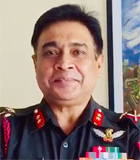 |
The Author is former Chief of Staff of a frontline Corps in the North East and a former helicopter pilot. He earlier headed the China & neighbourhood desk at the Defence Intelligence Agency. He retired in July 2020 and held the appointment of Addl DG Information Systems at Army HQ. |
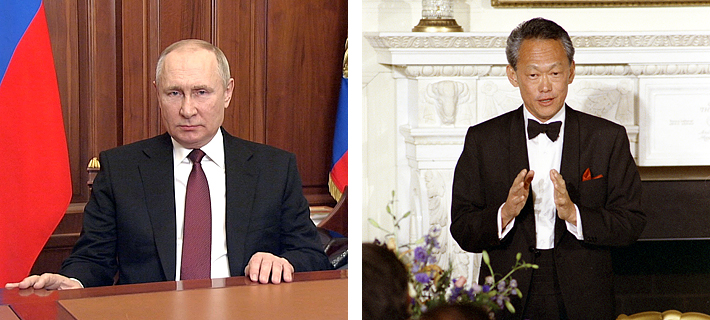
Comparisons are odious. Late Lee Kuan Yew was the Prime Minister of Singapore (1959-1990) of a poor, impoverished city-state which he transformed into one of the wealthiest societies on earth in just one generation. President Vladimir Putin has been in power in Russia since 1999, and is seen as a megalomaniac with Czarists ambitions who has cruelly unleashed a gruesome war on Ukraine; a global pariah as per popular narrative. So why the pairing?
For one, both leaders are variously described as autocrats, although while one is toasted as having been a benevolent dictator, the other is labelled as a toxic, pathological despot. Setting aside biases and narratives, they deserve a fair comparison, premised on what they have achieved for their respective countries, their people, and what they have meant for rest of the world.
Lee Kuan's Legacy of Economic Transformation
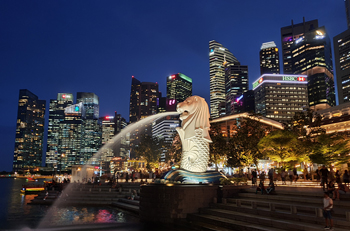
Lee contended that people don't pine for democracy. First and foremost, he said, "they want homes, medicine, jobs, schools," according to the 1998 book "Lee Kuan Yew: The Man and His Ideas." Let's look at two comparable island nations. In 1960, Singapore and Jamaica had roughly the same gross domestic product per capita — about $425. India then crawled at a lowly $82 but we will leave India out of reckoning here because of its immense size and complexity. By the time Lee demitted office in 1990, Singapore GDP per capita had risen to $11,862 (28 times in 30 years) compared to Jamaica's $1,920 (5 times). By 2023, Singapore's GDP per capita has risen to $84,714, while Jamaica's is just $6,874.
Lee Kuan Yew transformed Singapore from an impoverished city-state into one of the wealthiest societies on earth in just one generation
Singapore holds elections, but the ruling People's Action Party, which controls much of the media and a host of lucrative jobs, has remained in power since independence. Critics say Singapore is more like a plutocracy, in which well-paid yes men with the right connections to the Lee family rise up the ranks. Sounds so much like what Putin is accused of by the west.
Putin's Rise and Economic Stabilisation
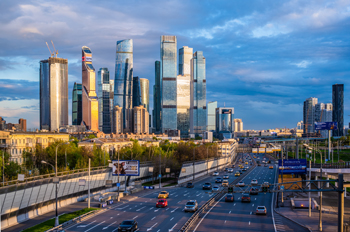
Putin assumed leadership of Russia in 1999 at a difficult and precarious juncture. His predecessor Boris Yeltsin, afflicted with health problems worsened by a reported fondness for vodka, left behind a corrupt, incompetent and feeble government. Yeltsin's "shock therapy" programmes, as Russia made the difficult transition from seven decades of Soviet model to market economy, left a country that lurched from crisis to crisis, starting with a staggering 2,600 per cent annual inflation rate by the end of 1992. Under Putin's steadying hands, per capita GDP grew sharply from $1,331 in 1999 to $15,975 in 2013 (12 times in roughly as many years; in a way comparable to the economic miracle achieved under Lee).
Putin assumed leadership of Russia in 1999 at a precarious time, following Boris Yeltsin's corrupt and unstable government, and oversaw a dramatic rise in per capita GDP
In February 2014, the Orange revolution conspired by the US overthrew the pro-Russian Yanukovych government in Ukraine, leading to the annexation of Crimea by Russia in order to protect its Black Sea Fleet. Russia was kicked out of G8 of which it was a member since 1997. Since the onset of Ukraine war in February 2022, despite freezing of its forex assets to the tune of $300 billion parked in western banks, eviction from the global SWIFT settlement system and imposition of over 16,000 sweeping sanctions by the west, the Russian economy has demonstrated remarkable resilience with a per capita GDP of $14,391 in April 2024, (still higher than China's $13,136). In PPP terms, it's even more impressive ($29,599 vs. China's $21.991). The Gini Index for Russia at 36 per cent says it has less inequality than the USA at 39.8 per cent.
Russia's Historical European Connections
The inquiry then must shift to what Putin has meant for the world in general and for its neighbours in Europe in particular. Russia has always considered itself to be politically and culturally more European than Asian. Though approximately three quarters of Russia's landmass is in Asia, three quarters (77 per cent) of its 145 million citizens reside in the European segment. Europe's noble families have centuries old deep connect with the Russian royals through marriages and ancestry.
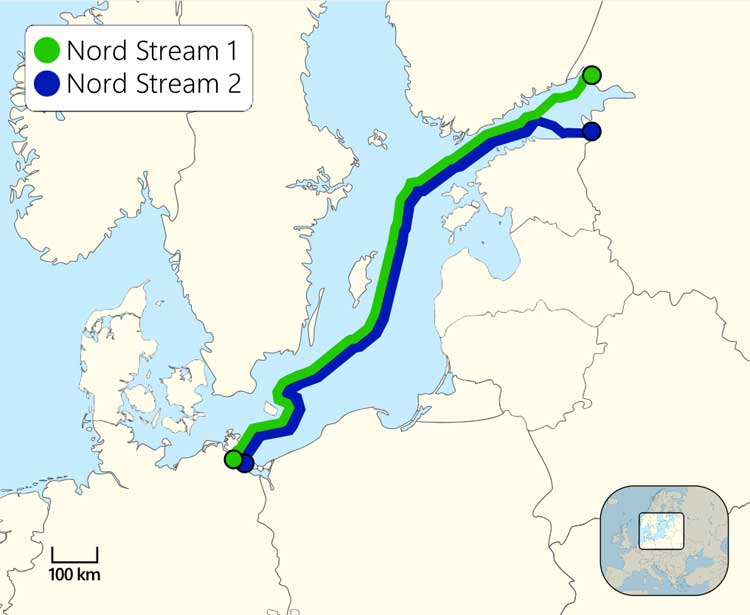
Post the October revolution, the newly formed USSR had continued its strong European connect, fighting as allies alongside USA and Great Britain in WW II against Nazi Germany. When the US created the NATO on April 4, 1949, the Soviets under Nikita Khrushchev sent the letters of intent for NATO membership, to partner in the collective security of Europe. This was rejected. The effort continued under Putin. George Robertson, a former UK defence secretary who led NATO between 1999 and 2003, has said that Putin made it clear at their first meeting that he wanted Russia to be part of western Europe. The account chimes with what Putin told the late David Frost in a BBC interview (2000) that it was hard for him to visualise NATO as an enemy. "Russia is part of the European culture. And I cannot imagine my own country in isolation from Europe and what we often call the civilised world."
Russia under Putin synchronised its vast energy resources with European enterprise, especially German engineering, to establish a genuine Eurasian union, building vital oil and gas pipelines like Nord Stream I and II
Russia under Putin synchronised its vast energy resources with European enterprise and specifically German engineering to establish a genuine Eurasian union. It painstakingly built thousands of miles of oil and gas pipelines including under-sea Nord Stream I and II in collaboration with Germany. For the pipelines passing through Ukraine to rest of Europe, it paid a hefty $3 billion transit fees annually. Russia provided roughly 40 per cent of all imported gas to the EU prior to the war.
The Contradictions in Global Perception
In the past 25 years, Russia has not been accused of any military adventurism save rescuing Basher Assad's Syrian regime from falling during the US inspired and failed Arab Spring. It has been an active member of the BRICS that is making effort to establish a more participatory, fair and equitable global financial architecture.
Putin's early foreign policy efforts included attempts to align Russia with Western Europe, with Putin expressing that he could not imagine Russia isolated from Europe and "the civilised world"
On the other hand, the US has the dubious record of covert regime change operations by the CIA (sixty-four as per scholar Lindsay O'Rourke), proxy wars, economic aggression, and assassinations stretching from Central America to Africa through the Middle East and Asia. Apart from its bleak and gruesome war in Vietnam, it bombed Kosovo in 1999 and bombed Afghanistan in 2001 to stone age before tamely handing it back to Taliban leaving behind a huge cache of lethal arms, weapons, combat vehicles and munitions. US has turned vast stretches of ungoverned spaces in Syria, Iraq and Libya ripe for jihadists like the Islamic State to operate with impunity after unilateral military interventions.
Conclusion
Yet, the largest arms exporter and top military spender, the US is seen as the leader of the 'Free World' while Putin is the evil incarnate. Those who paint Putin as a hallucinating dictator eyeing to re-establish the Russian empire of yesteryears must introspect. Maybe he is much closer in his conduct and achievements to Lee. Maybe the pairing in this column is justified.
As they say, "History is written by the Victors." The presumptive victors (the US led west) are busy peddling their version of history in the making. The future may hold something starkly different. The legacy of Putin then might get a fresh coat of paint.





